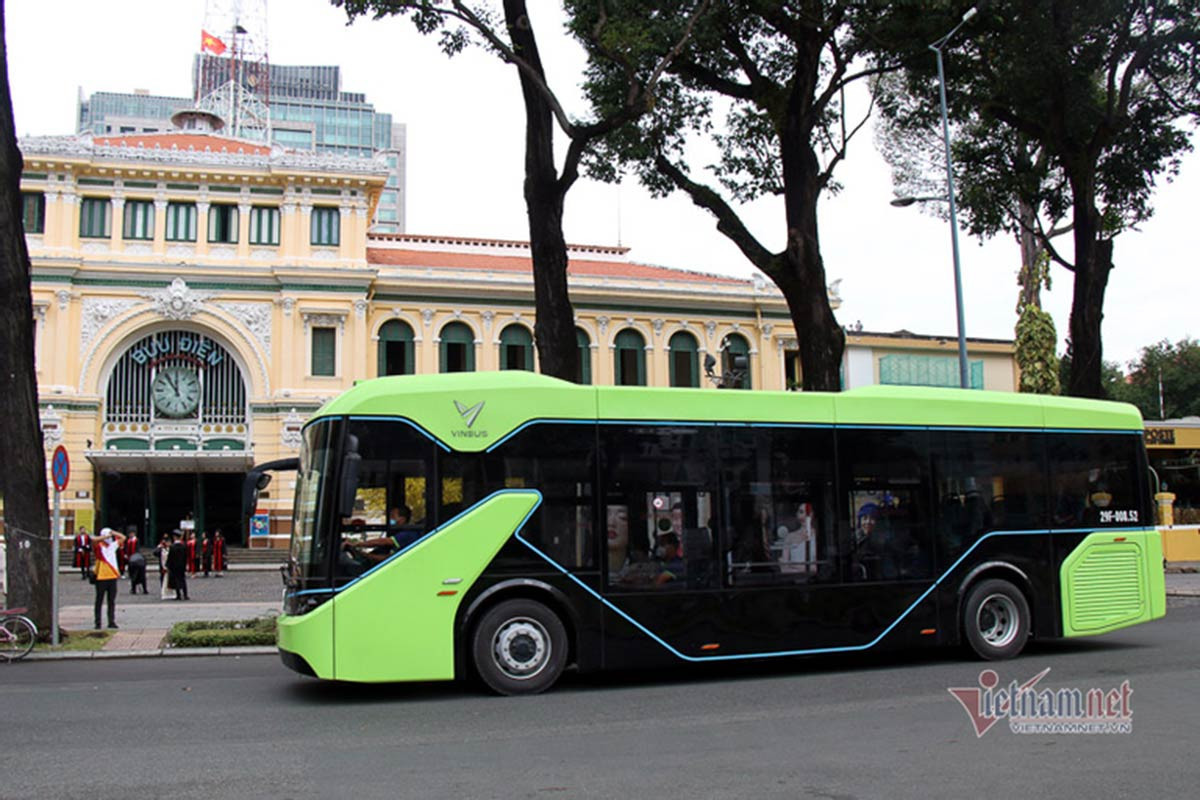The Hanoi People’s Committee recently approved the "Development Plan for Public Transport by Electric and Green Energy Buses" for the city.
Hanoi’s leadership has acknowledged severe air pollution in major cities such as Hanoi and Ho Chi Minh City. Transitioning to green energy and reducing carbon emissions is seen as critical for mitigating environmental pollution.
Additionally, this transition aligns with Vietnam’s commitments to the 26th UN Climate Change Conference (COP26) and serves as a steppingstone toward green growth. It is also an opportunity to modernize and sustainably develop the transportation sector, meeting global advancements and trends.

The plan also represents a major improvement in public transportation quality, aimed at encouraging more residents to use buses. This initiative supports Hanoi’s goals of increasing public transportation's share of total passenger traffic to 30–35% by 2025, 50–55% by 2035, and 65–70% post-2035. These measures are expected to transform Hanoi’s urban traffic system, reduce congestion, and foster a more civilized traffic culture.
The plan outlines a roadmap for transitioning to electric and green-energy buses, following the Prime Minister’s Decision No. 876/QD-TTg dated July 22, 2022. It also proposes comprehensive solutions to ensure effective implementation, with the goal of achieving 100% green-energy public buses by 2035.
As of September 2024, Hanoi operates 10 electric bus routes managed by Vinbus Eco Transport Services Co., Ltd. These buses have been well-received by residents for their service quality and environmental benefits.
In early 2025, based on proposals from transport companies and approval from Hanoi authorities, four companies - Hanoi Transport Corporation, Newway Transport JSC, Hai Van International Transport JV Co., Ltd., and Bao Yen Travel & Services Co., Ltd. - will initiate pilot operations of five electric bus routes with 76 vehicles (11 small and 65 medium-sized buses). These pilot programs will establish cost benchmarks for electric buses with varying capacities.
From 2026 to 2030, Hanoi plans to convert 1,813 buses to electric or green-energy vehicles, achieving a conversion rate of 93.4% of targeted vehicles.
In the next phase (2031–2035), an additional 238 vehicles will be converted, reaching a 100% conversion rate by 2035. This will include an equal split of electric buses and CNG/LNG-powered buses.
The total investment required for this initiative is approximately VND 48.625 trillion ($2 billion). Of this, Hanoi’s municipal budget will cover VND 35.996 trillion ($1.5 billion), while private enterprises will need to secure VND 12.629 trillion ($515 million).
Hanh Nguyen